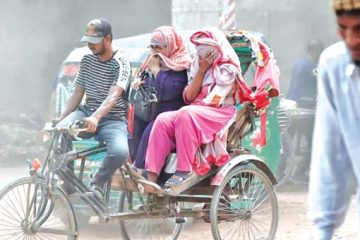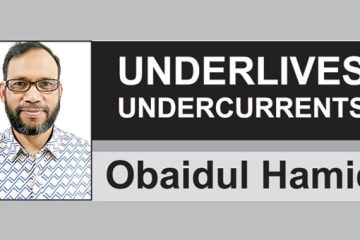From being seen as mere philanthropy and ‘doing good’, corporate social responsibility is now at the heart of business sustainability and ethical and accountable corporate behaviour
Bitopi Das Chowdhury
 CSR or corporate social responsibility has been a buzz phrase for quite some time now. Not a day goes by without it being mentioned, albeit in passing, in daily business discourse. Even during the last decade, CSR was looked upon by big businesses as “doing good” — something that was “extra” to their day-to-day effort of profit maximisation, a great public relations (PR) tool to generate empathy among their customers and favouritism from the powers that be. Not anymore.
CSR or corporate social responsibility has been a buzz phrase for quite some time now. Not a day goes by without it being mentioned, albeit in passing, in daily business discourse. Even during the last decade, CSR was looked upon by big businesses as “doing good” — something that was “extra” to their day-to-day effort of profit maximisation, a great public relations (PR) tool to generate empathy among their customers and favouritism from the powers that be. Not anymore.
Companies today realise that maximising welfare for all their stakeholders (as opposed to maximising profits for shareholders) is integral to their bottom line. As Niall Fitzerald, former chief executive officer of Unilever, rightly puts it, “Corporate social responsibility is a hard-edged business decision. Not because it is a nice thing to do or because people are forcing us to do it…because it is good for our business.”
However, while every company these days seems to talk the talk, not everyone actually walks the walk. A lot of effort and emphasis go into the PR and communication aspect of “doing good” — talking about it and being seen to be doing good, and not enough in actually being accountable to the stakeholders, that is, society at large.
The bottom line is that no company today can ignore CSR. And quite a few of them are doing it well, doing it right. Many of them have rightly realised that it isn’t just about the superficial layer of philanthropy and being charitable. It is also about being accountable with the right corporate governance, and being innovative about actually making a difference. In essence, a meaningful CSR initiative should originate out of genuine caring for the stakeholders; it should be designed to make a difference to the beneficiaries, while making ‘good business sense’ for the shareholders of the organisation.
Several Fortune 500 companies who lead the CSR space have taken the concept even further; they also address the issue of ‘sustainability’ not only in business, but also in their CSR initiatives. Many of them have championed the ‘Triple Bottom Line’ framework of measuring performance, which incorporates three dimensions of performance: social, environmental and financial.
Good CSR is often done in partnerships with social issue experts. Starbucks hosted a ‘Cup Summit’ at the Massachusetts Institute of Technology to bring together municipalities, raw materials suppliers, cup manufacturers, retail and beverage businesses, recyclers, NGOs and academic experts to share ideas to make paper and plastic cups more broadly recyclable. In an effort to make their coffee cup 100 percent recyclable, they realised a shift is needed in not just their operations but in the entire food packaging and recycling industry.
In Bangladesh too, a number of businesses have grasped the meaning of true social responsibility and are doing exemplary work. And it is notable that the ones who are doing it properly and meaningfully are also the ones not too fussed about beating their own drums about it.
Rahimafrooz, as a corporate house, has been a shining example of business ethics at work for many years. Their Rural Service Foundation (RSF), a social development initiative focusing on education, poverty alleviation, environment and transport is a great CSR story. Viyellatex, one of the largest textile groups, has spent significantly in education, social and free health care programmes.
The Standard Chartered Bank Financial Express CSR Awards is probably the only initiative in the country that sets a benchmark in evaluating, recognising and bringing the forefront organisations that have truly grasped the meaning of social responsibility and are setting a shining example without making too much of a fuss. The event held on Thursday brought forward some new names like Renata Ltd and the DBL Group to the ‘walk of fame’ while Nestle Bangladesh added another feather to its halo.
Fifty one percent of Renata Ltd is owned by Sajida Foundation, a non-profit organisation engaged in microfinance and other activities concerning social upliftment. Even outside of the various CSR activities undertaken by Renata, half of the enterprise, by nature of its ownership, represents a social business. This is an excellent example of the commitment to CSR; the success of the business enterprise has been widely shared with the community at large. A sizeable portion of the DBL Group’s profit is channelled into CSR activities, reflecting their commitment to social development. This enterprise provides wide-ranging support in the fields of education and health, especially supporting the general ward of the burn unit at Dhaka Medical College Hospital.
Nestle Bangladesh does exemplary work in water conservation, especially in their recycling and rainwater harvesting initiatives. It supports the immediate community by providing drinking water to neighbourhood schools, as well as extending support for sanitation, computers and life skills trainings (on water education and nutrition). Despite the small scale of these activities, they have significant demonstrative value for replication.
This year’s winners of Standard Chartered Financial Express CSR awards should be congratulated and hailed for showing the way and inspiring the business community for doing what other sectors in Bangladesh cannot do so easily — bring about real change in people’s lives.
(Article originally published on The Daily Star)
The writer is the head of corporate affairs, Standard Chartered Bank, Bangladesh.







